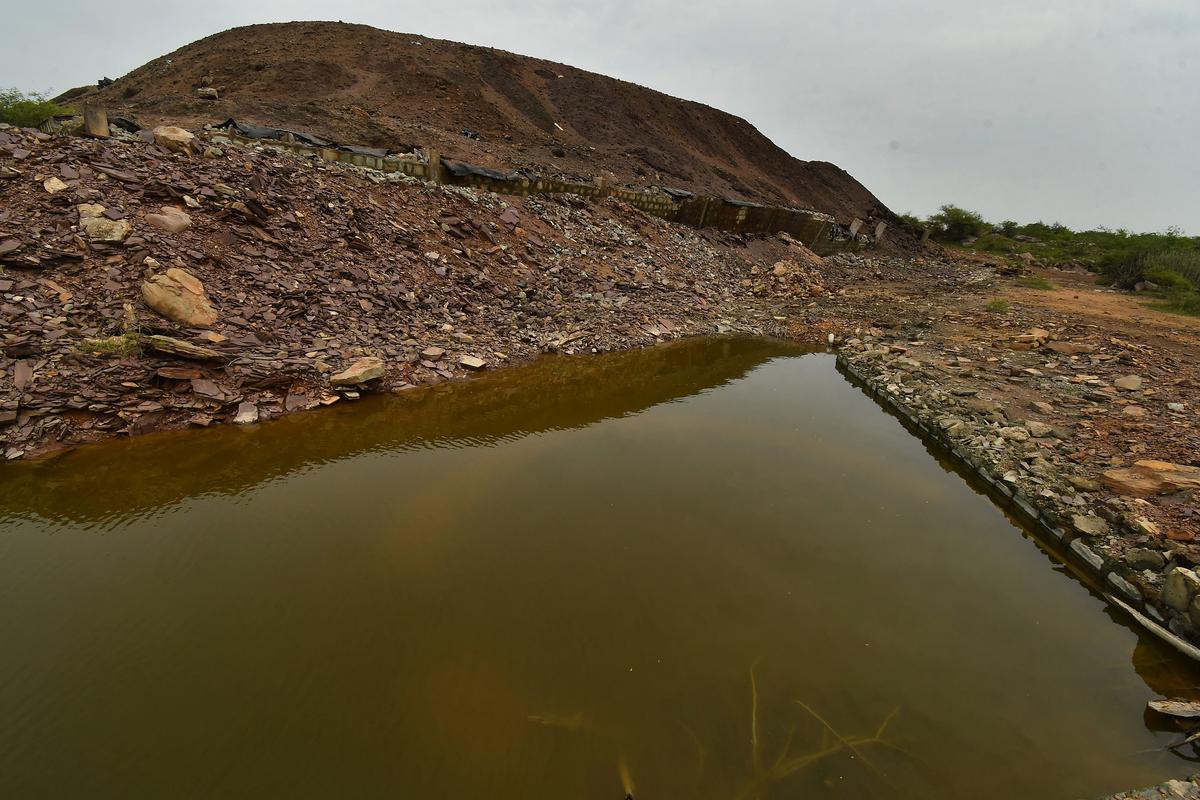
Damaracherla’s waste heap has a toxic legacy, yet a new threat looms
The Hindu
In Nalgonda’s Damaracherla village lies an enormous heap of hazardous waste, left behind by Deccan Chromates Limited. Years of protests forced the factory to wind up operations a decade ago, but the chemical waste remains uncleared to date. Even as the locals continue to suffer the effects of the pollution, they are dreading the prospect of another chemical factory in a nearby village
Indescribable fear grips onlookers standing before the vast grey heap extending as far as the eye can see. Looming ominously, intimidating not only by its size, but also by its obstinate refusal to allow even a blade of grass to grow on it, the manmade hillock at Damaracherla village of Nalgonda district has one more dread-inducing factor. Hidden behind the enormous pile is a canal made of concrete in which flows greenish yellow fluid, scarcely arrested by a temporary bund of stones.
“It is chromate, leaching with rain water from this pile of hazardous waste. It flows downstream into Bugga Vagu, which is a tributary of the Musi river, to finally reach the Krishna river,” explains Vennepally Panduranga Rao, a citizen activist from the area.
A dilapidated granite tablet indicating ‘Deccan Chromates Limited’ ahead of the heap of chemical waste stands as mute spectator to the devastation caused by the factory over 10 years ago.
Sodium dichromate, a compound used in chromium plating, leather tanning, and several other enterprises, was being produced here by the unit in its heyday. Years of trenchant protests and complaints from the surrounding villages led to its closure in 2012.
“We initially approached the industry in 2009 with concerns about local people not being recruited, and the existing workers being removed from jobs. Upon probing, we got to know horrific details about the effects of the production process on workers,” Mr.Panduranga Rao said, recalling the context for the protests.
Movva Rama Rao, a surgeon with years of practice in Miryalaguda, vouched for the havoc that the hexavalent chromium fumes had wreaked on workers’ health. The workers were not given masks or protective gear, due to which the inhalation of fumes destroyed the mucosal lining of the nose.
“Eventually, it damaged the septum, resulting in nose bleeds and holes in the nose bridge. Worst was the destruction of mucosal lining all along the respiratory tract, which made it susceptible to bacterial attacks, leading to tuberculosis,” Dr. Rama Rao said.

Senior BJP leader and former Telangana Governor Tamilisai Soundararajan on Saturday (November 23, 2024) said the landslide victory of the Mahayuti alliance in the Maharashtra Assembly election was historic, and that it reflected people’s mindset across the country. She added that the DMK would be unseated from power in the 2026 Assembly election in Tamil Nadu and that the BJP would be the reason for it.










